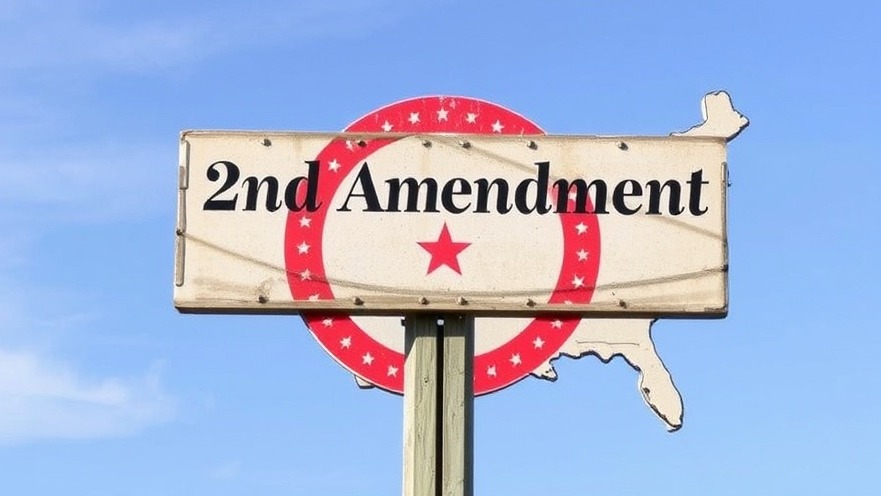
Texas Lawmakers Debate Armed Poll Workers in Election Settings
The recent discussions in the Texas Legislature surrounding House Bill 1128 have ignited heated debates on balancing safety and voter integrity. This proposed legislation aims to allow election judges to carry concealed firearms at polling places, operating under the premise that it would protect these poll workers amid rising threats and violence.
Context Behind the Bill: Why Now?
Rep. Carrie Isaac, the sponsor of Bill 1128, highlights alarming statistics from the Texas Secretary of State's elections director, who reported bomb threats and physical assaults against election workers during the 2024 elections. With these incidents contributing to a dwindling pool of volunteers, advocates argue that arming election judges could serve as a preventive measure against potential violence at polling sites.
Understanding the Role of Election Judges
Generally comprising civilians appointed by local political parties, election judges oversee polling places, manage voting procedures, and resolve disputes. They play a critical role in maintaining election integrity, which makes their safety paramount. Current tensions surrounding elections, however, have put their safety into question, leading to proposals such as this one.
Opposing Voices: Concerns About Armed Polls
Despite the supporters' arguments, critics raise valid concerns regarding the implications of arming civilians in voting scenarios. Representative Maria Luisa Flores questioned the rationale of escalating potential confrontations with firearms, citing past cases where violence was minimal. This apprehension was echoed by other lawmakers who suggested that law enforcement could adequately support poll sites instead of arming election judges.
Historical Context: Legal Precedents
Interestingly, the bill's foundation rests partially on a 2018 ruling from Texas Attorney General Ken Paxton, asserting that since district judges can carry firearms to polling locations, election judges—who operate with similar authority—should have the same rights. However, this interpretation is non-binding and raises questions regarding legal consistency and public safety.
Potential Impact on Voter Dynamics
The proposal has potential ramifications on how voters perceive election environments. Critics like Rep. Vikki Goodwin warn that introducing firearms may create a hostile atmosphere for minority communities, further complicating issues of intimidation that have previously arisen at polling stations. This could inadvertently deter voter participation, particularly among groups already facing systemic challenges.
Future Predictions: What Lies Ahead?
If this bill passes through the Senate, the larger implications may lead to a reevaluation of safety measures on election day across Texas and potentially in other states. As other jurisdictions watch Texas navigate this contentious issue, various states could reflect on their policies surrounding armed personnel at public voting places.
Conclusion: The Need for Balanced Solutions
As Texas evaluates the need for enhanced protection for election workers, the discourse surrounding House Bill 1128 emphasizes the importance of finding common ground between safety and preserving an accessible and democratic voting process. Clarity and fairness must guide these decisions to secure not only the safety of poll workers but also the integrity of the democratic process.
In light of these developments, it’s crucial for citizens to remain informed about local legislative changes and their potential impact on voting procedures. Stay engaged to ensure that your voice is heard this election season!
 Add Element
Add Element  Add Row
Add Row 



Write A Comment